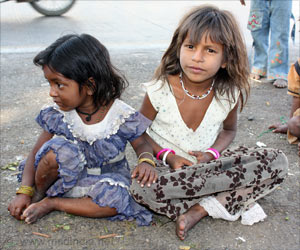- Homeless children have the highest risk for poor health, increased hospitalizations and developmental delays compared to children who have never been homeless
- The authors say that to improve pediatric health outcomes we need interventions to stabilize young families in affordable housing as soon as possible
Homelessness in the prenatal stages can have adverse outcomes in newborns. However, how much a child’s postnatal health is affected by the extent of homelessness during pregnancy and / or the child’s early life in vague – the current study sets to look into that aspect.
Study – How the health of young children is affected by the timing and duration of pre- and postnatal homelessness
Researchers interviewed 20,571 low-income caregivers who had children less than four years who visited urban outpatient pediatric clinics and / or emergency departments in five cities across the United States between 2009 and 2015.
The timings of homelessness were categorized into prenatal, postnatal, both, or never; duration of homelessness was divided into two categories, greater than 6 months or less than 6 months.
They also conducted an assessment of the child to determine
- The child’s overall condition
- If/how often the child was hospitalized
- If a child was overweight or underweight
- If the child experienced any developmental delays
- Prenatal homelessness was experienced by more than three percent of caregivers
- Postnatal homelessness by 3.7 percent
- Those who reported homelessness in both periods were 3.5 percent
- They found that compared to children who had never been homeless, children who were homeless during both the pre- and post-natal period were at the highest risk for -
- Postneonatal hospitalizations
- Fair or poor child health
- Developmental delays
- Children under 1 year who were homeless for more than six months during the first year of life were at high risk of fair or poor health
- Children between 1 and 4 years of life who were homeless for more than six months during that period were also at high risk of fair or poor health
Poor health outcomes caused by child homelessness will result in more hospitalizations, more use of health care and increase the need for developmental interventions. All this creates substantial family and societal health care expenses.
"As pediatricians, we should be regularly screening families for housing insecurity, including past history and future risk of homelessness," said Deborah Frank, MD, director of the GROW Clinic at BMC and senior author on the study.
She says that interventions that prevent homelessness for families and pregnant women can be extremely useful in addressing housing instability.
Reference:
- Megan Sandel, Richard Sheward, Stephanie Ettinger de Cuba, Sharon Coleman, Timothy Heeren, Maureen M. Black, Patrick H. Casey, Mariana Chilton, John Cook, Diana Becker Cutts, Ruth Rose-Jacobs, Deborah A. Frank. “Timing and Duration of Pre- and Postnatal Homelessness and the Health of Young Children”. Pediatrics, September 2018
Source-Medindia










